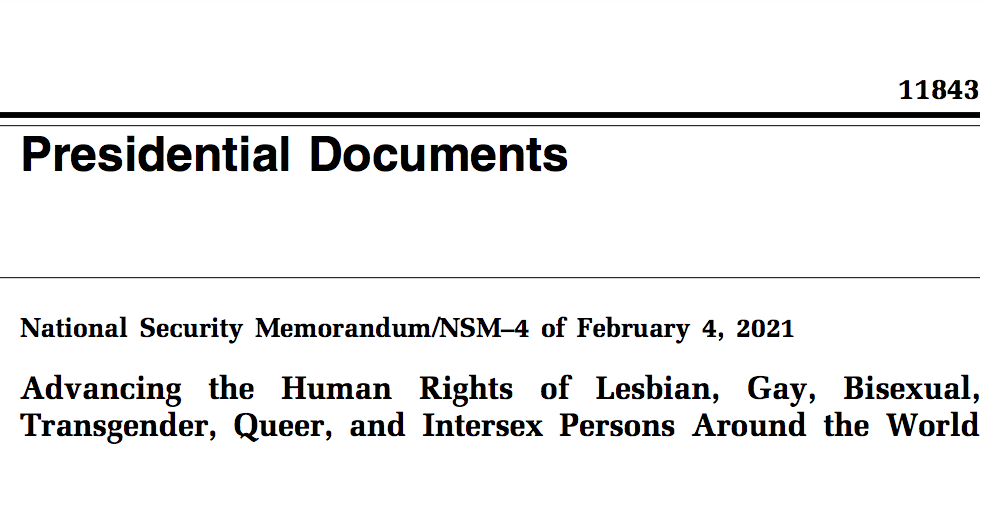On February 4, President Biden issued a memorandum to agency heads on “advancing the human rights of lesbian, gay, bisexual, transgender, queer, and intersex persons around the world.”
He directed that “it shall be the policy of the United States to pursue an end to violence and discrimination on the basis of sexual orientation, gender identity or expression, or sex characteristics.”
Somewhat surprisingly, the memorandum was designated National Security Memorandum/NSM-4 and was published as such in the Federal Register on February 26.

This was unexpected since the NSM designation was not included in the original White House release on February 4, and the memorandum itself does not make any explicit reference to national security. The Biden memo builds on a 2011 Obama Memorandum which also did not invoke national security.
In effect, the defense of LGBTQI+ rights has now been elevated by the Biden Administration to a national security policy of the United States.
* * *
A January 21 White House policy on International COVID-19 Response was originally issued as National Security Directive 1.
But perhaps because the “National Security Directive” designation was previously claimed by the first Bush Administration, Biden’s NSD-1 was renamed and reissued as National Security Memorandum 1.
An unnumbered National Security Memorandum dated February 4 on Revitalizing the National Security Workforce is apparently NSM-3.
This rule gives agencies significantly more authority over certain career policy roles. Whether that authority improves accountability or creates new risks depends almost entirely on how agencies interrupt and apply it.
Our environmental system was built for 1970s-era pollution control, but today it needs stable, integrated, multi-level governance that can make tradeoffs, share and use evidence, and deliver infrastructure while demonstrating that improved trust and participation are essential to future progress.
Durable and legitimate climate action requires a government capable of clearly weighting, explaining, and managing cost tradeoffs to the widest away of audiences, which in turn requires strong technocratic competency.
FAS is launching the Center for Regulatory Ingenuity (CRI) to build a new, transpartisan vision of government that works – that has the capacity to achieve ambitious goals while adeptly responding to people’s basic needs.